2020 PPAI Pyramid Awards In Technology: Reaching Customers Where They Live, Work And Play

From the invention of the printing press in the 15th century through the birth of the web in the late 1980s, the first smartphone in the mid-’90s and the debut of podcasts in 2004, technology has continued to evolve as people seek the most effective, efficient and creative ways to communicate their thoughts and ideas through media.
The PPAI Pyramid Awards in Technology recognize industry companies for their outstanding use of websites, mobile apps, video content, social media campaigns and blogs. In evaluating the numerous member entries for this award, judges considered each entry’s use of images, content relevant to the intended audience, ease of use and creative delivery.
Earlier this year, 28 Gold and Silver Pyramids were awarded in seven categories spotlighting the industry’s best efforts toward using technology to connect businesses and their customers.
![]()

Gold Winner: Business Services
PromoCorner
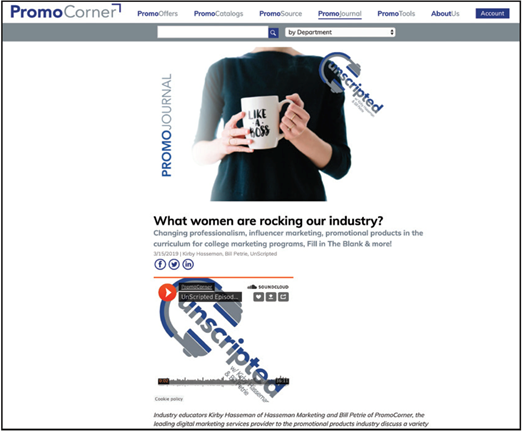
–––––––––––––––––––––––––––––––
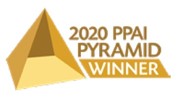
Gold Winner: Distributor
Productions Extreme
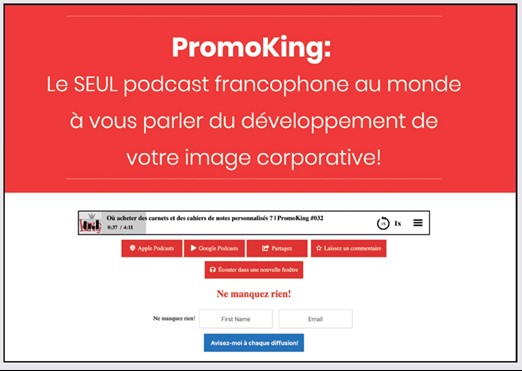
–––––––––––––––––––––––––––––––
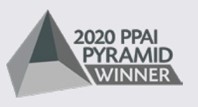
Silver Winner: Business Services
commonsku
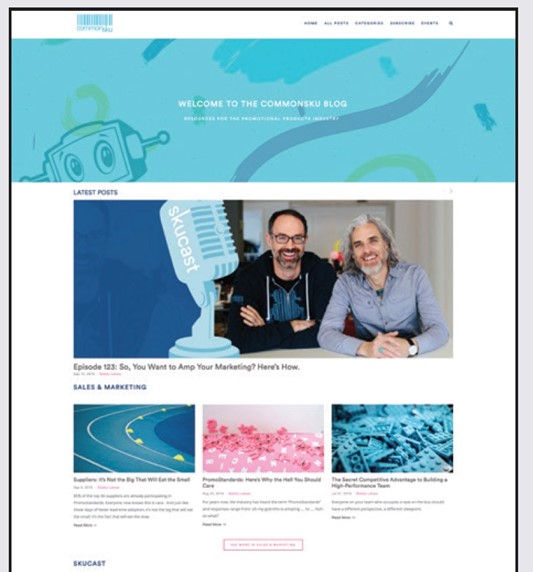
–––––––––––––––––––––––––––––––
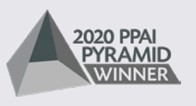
Silver Winner: Distributor
The Dunstan Group
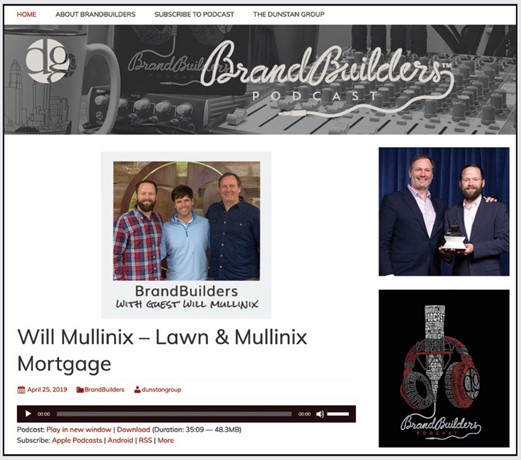
–––––––––––––––––––––––––––––––
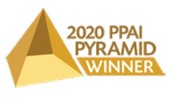
Gold Winner: Supplier
Outdoor Cap
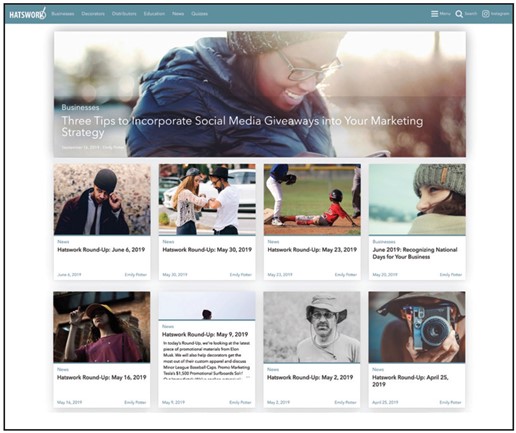
–––––––––––––––––––––––––––––––
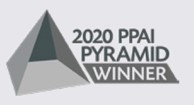
Silver Winner: Supplier
Maple Ridge Farms
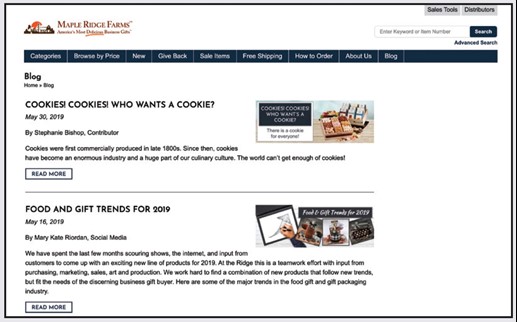
–––––––––––––––––––––––––––––––––––––––––––––––––––––––––––
![]()

Gold Winner: Business Services
Distributor Central
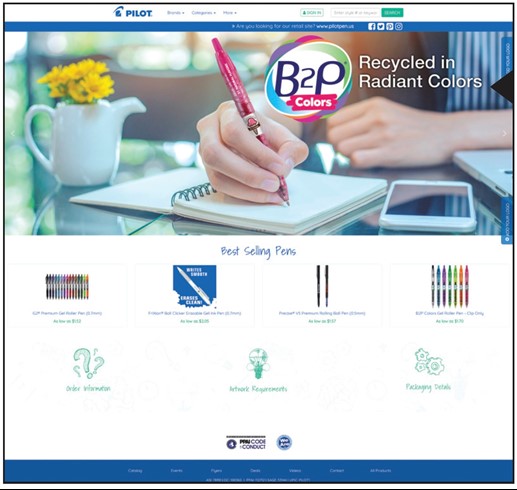
–––––––––––––––––––––––––––––––
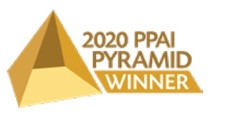
Gold Winner: Distributor
BAMKO
(Taco Bell Taco Shop)
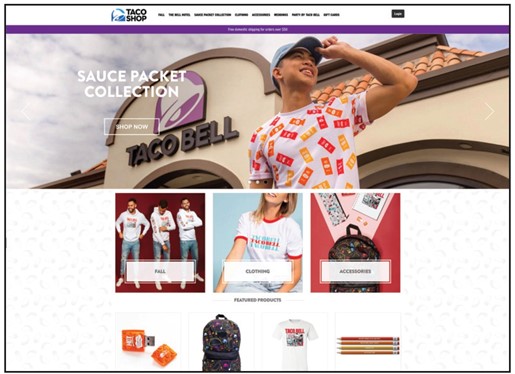
–––––––––––––––––––––––––––––––

Silver Winner: Distributor
BAMKO
(Crown Royal Shop)
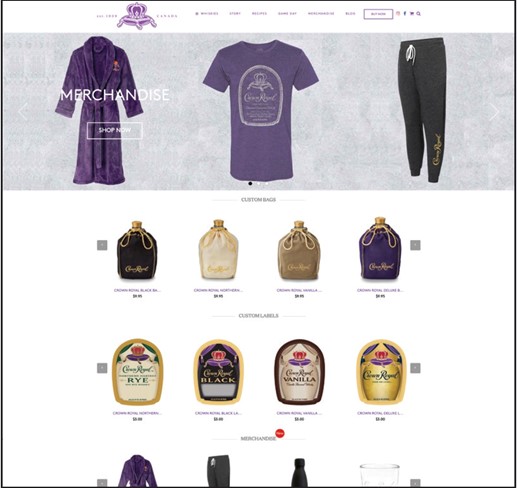
–––––––––––––––––––––––––––––––
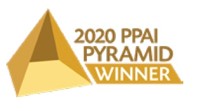
Gold Winner: Supplier
iClick
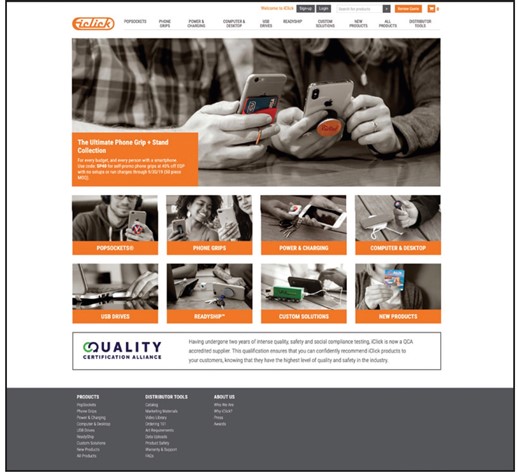
–––––––––––––––––––––––––––––––––––––––––––––––––––––––––––

Gold Winner: Distributor
ePromos
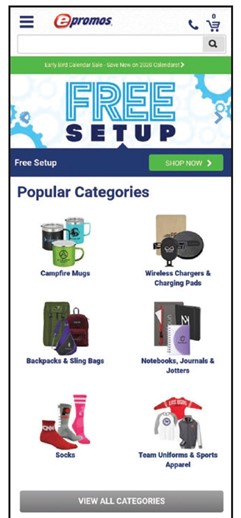
–––––––––––––––––––––––––––––––
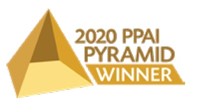
Gold Winner: Supplier
Gemline
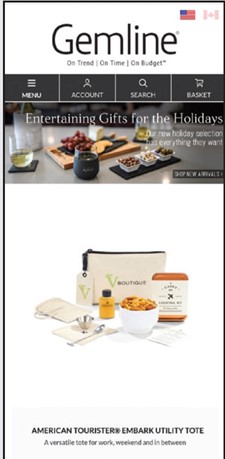
–––––––––––––––––––––––––––––––––––––––––––––––––––––––––––
![]()
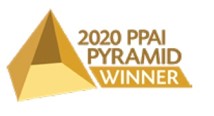
Gold Winner: Business Services
PromoKitchen (PromoKitchen Deep Dive)
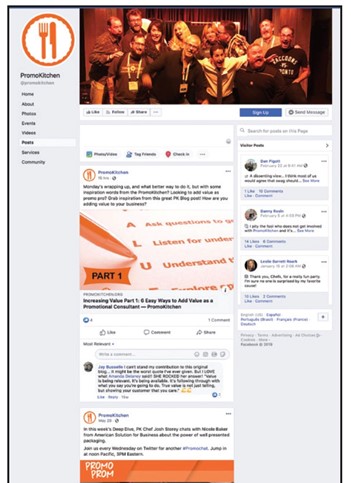
–––––––––––––––––––––––––––––––

Silver Winner: Business Services
PromoKitchen (#promochat)
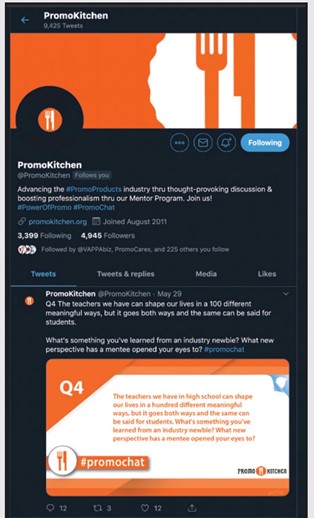
–––––––––––––––––––––––––––––––
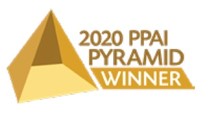
Gold Winner: Distributor
Signet
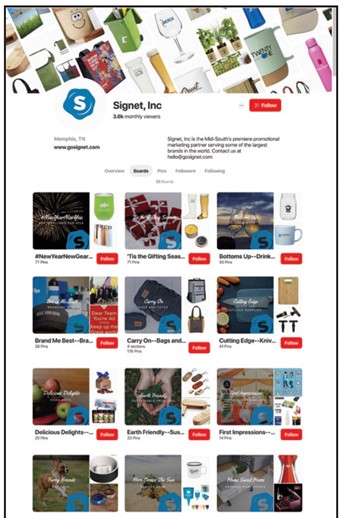
–––––––––––––––––––––––––––––––

Silver Winner: Distributor
HALO Branded Solutions
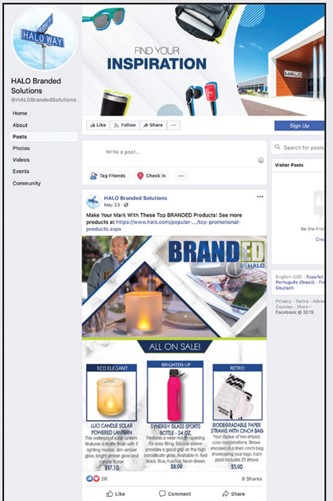
–––––––––––––––––––––––––––––––
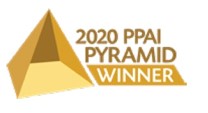
Gold Winner: Supplier
Spector & Co.

–––––––––––––––––––––––––––––––

Silver Winner: Supplier
Gold Bond
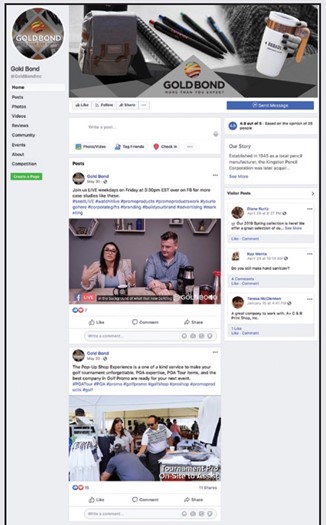
–––––––––––––––––––––––––––––––––––––––––––––––––––––––––––

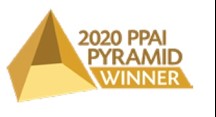
Gold Winner: Business Services
PromoCorner (How Promo is Made)
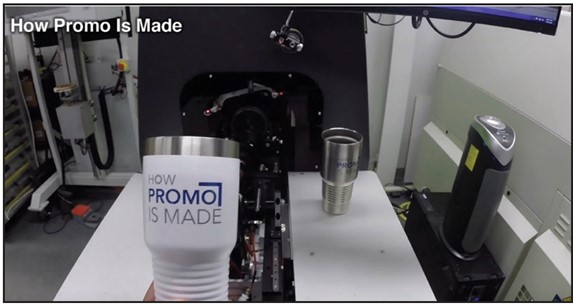
–––––––––––––––––––––––––––––––
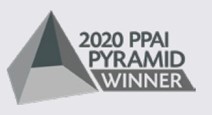
Silver Winner: Business Services
PromoCorner (The PromoEffect)
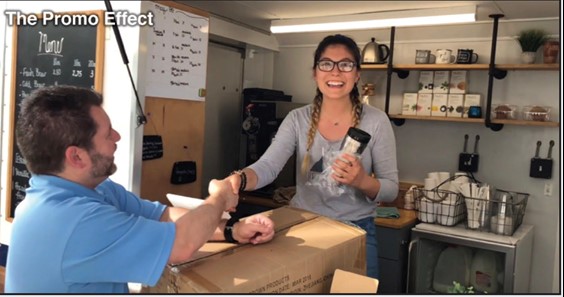
–––––––––––––––––––––––––––––––
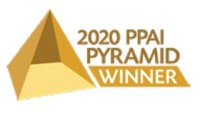
Gold Winner: Distributor
HALO Branded Solutions

–––––––––––––––––––––––––––––––
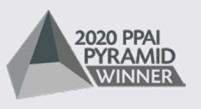
Silver Winner: Distributor
Geiger
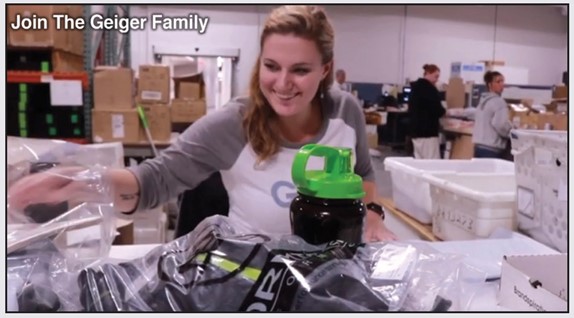
–––––––––––––––––––––––––––––––
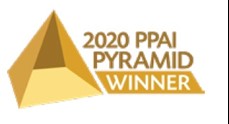
Gold Winner: Supplier
Spector & Co.
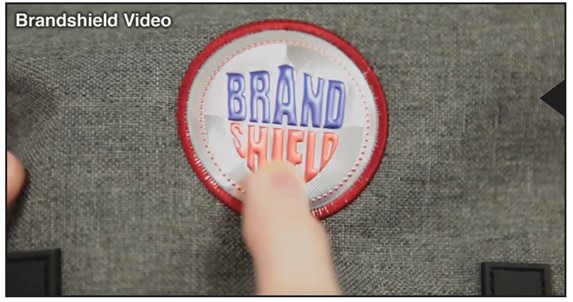
–––––––––––––––––––––––––––––––
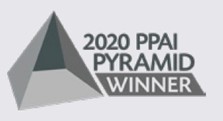
Silver Winner: Supplier
Vantage
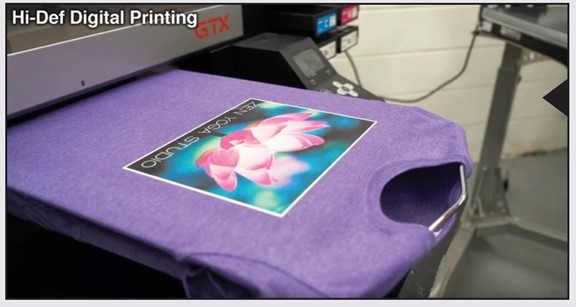
–––––––––––––––––––––––––––––––––––––––––––––––––––––––––––
![]()
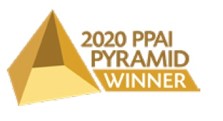
Gold Winner: Business Services
Distributor Central
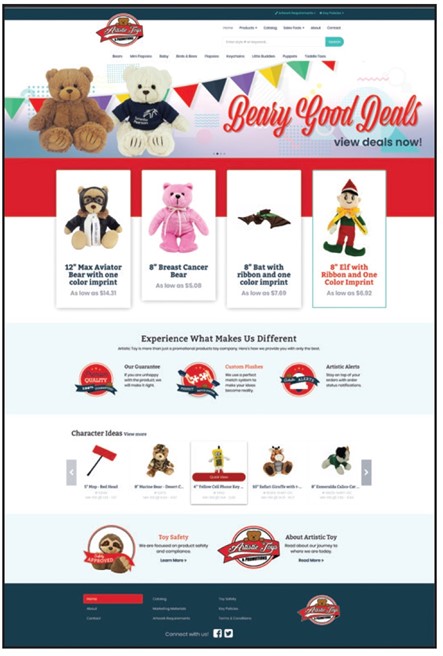
–––––––––––––––––––––––––––––––

Gold Winner: Distributor
Barker Specialty
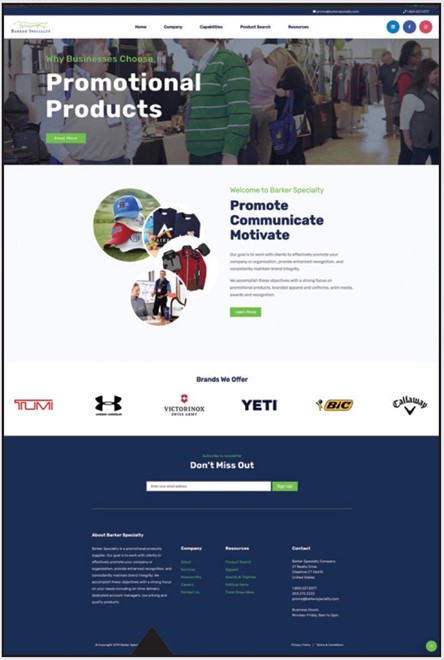
–––––––––––––––––––––––––––––––

Gold Winner: Supplier
Gemline
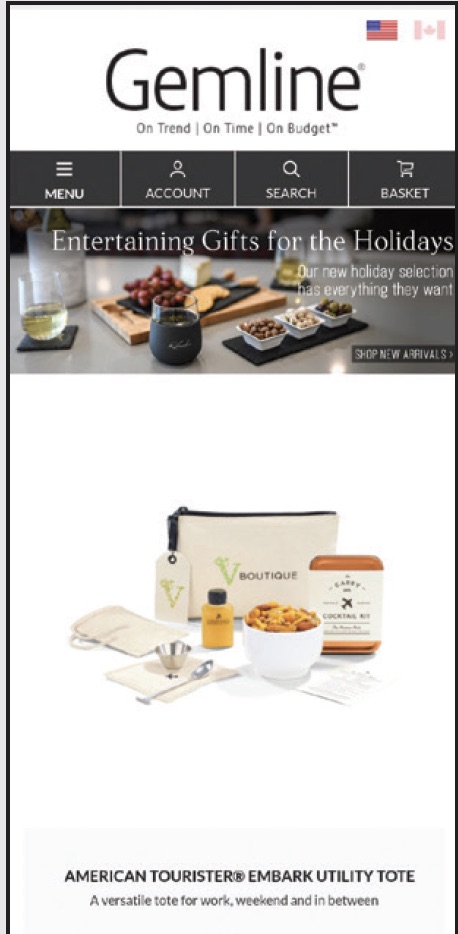
–––––––––––––––––––––––––––––––
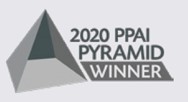
Silver Winner: Supplier
Busy Beaver Buttons
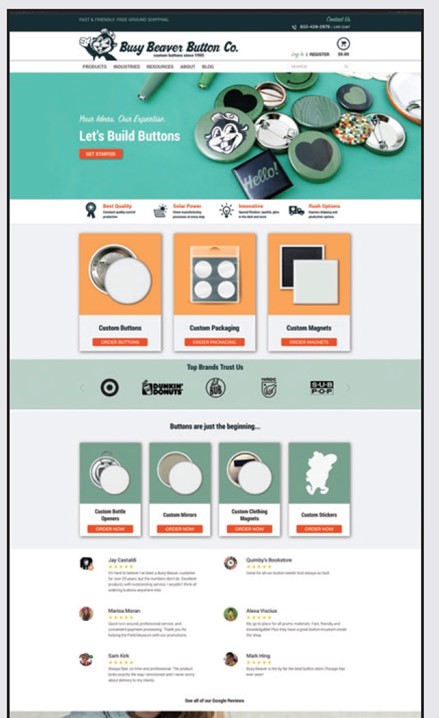
–––––––––––––––––––––––––––––––––––––––––––––––––––––––––––
An ‘unScripted’ Conversation With Kirby Hasseman And Bill Petrie
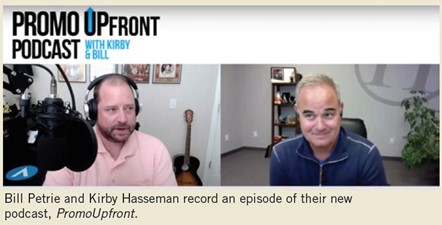
Big hair, leg warmers, acid-washed jeans and Swatch watches—ah, the 1980s. But that decade was also the backdrop for something else, a new concept in communication—podcasts. First dubbed “audio blogging” in the ’80s, the concept made a resurgence in 2004 with the availability of broadband internet access and portable audio devices. As of October 2020, research by podcasthosting.org reports there are more than 1.5 million podcasts and more than 34 million episodes.
Even in a crowded marketplace, excellence stands out. Industry pros Kirby Hasseman, owner of Hasseman Marketing and Communications and Bill Petrie, managing partner of Brandivate, launched their first podcast, unScripted, in May 2016 and published it weekly—a total of 206 episodes—until June 2020. The podcast, which featured candid discussions on industry news, trends and a wide variety of topics, and had 1,800 subscribers, won Gold in this year’s Pyramid Awards for technology.
“Consistency is our biggest pillar. We didn’t miss a week,” says Hasseman. Petrie adds that no matter what was going on in their lives, the pair made sure the podcast was published every Friday at 8 am ET. To make that happen, they recorded while on vacation, at industry events and sometimes they recorded two episodes in advance, if they were traveling.
“There are a couple of things I’m proud of [with this podcast] and consistency is one,” says Hasseman. “We showed up every Friday. The other is authenticity and transparency. Those words are thrown around a lot but with us, whether you like my opinion or hate it, it’s my opinion. We try to be respectful of everybody, but we’ve created some controversy over the years because we’ve said things that were unpopular. A few times we backtracked a little but for the most part you are getting ‘in the moment,’ authentic responses and in a world where everything seems to be Instagramed, filtered and polished, the authenticity is what, I think, people enjoy.”
The pair have known each other for 15 years and at one point, realized the conversations they were having about supplier/distributor relationships and ways to compensate sales reps, for example, would be interesting to others as well. They had also written a couple of pro/con articles for PromoKitchen’s website under the header Salt and Pepper, where they took opposing sides on an issue. The podcast was a natural evolution.
“Originally, we wanted to do it as a live radio show, but the technology just wasn’t there,” says Petrie, “so we did it in podcast form and it is unscripted. I have topics Kirby doesn’t know about and Kirby has topics I don’t know about, so you are getting an honest reaction from the other person.” They also agreed not to edit the recording to make the podcast as authentic and transparent to the listener as possible.
Through the four years that the podcast was produced, it evolved in terms of the types of topics discussed and the medium itself. “We’ve talked about some very difficult things in our podcasts, such as racial diversity,” says Petrie. In January 2020, the podcast was elevated to video.
“When we first started, we didn’t have much of an audience. But early on in the broadcast we let people know we wanted to hear from them. That was one of the ways we built our audience,” says Petrie. The duo used social media to promote the podcast and invited comments through social media posts, too. “When you put out content and don’t get any feedback, you wonder, ‘Why am I doing this?’ So the more engagement we get, the better,” he adds.
In terms of content, Hasseman says, “There are times where you feel thin, but there are times when there’s so much content you feel like you need another podcast. That has to do with news cycles and what’s happening. Ideas are not the problem, especially when you start flexing that muscle. I look at it and think about what the audience would find value in. Sometimes, it’s an issue I’m struggling with personally—so perhaps other people are struggling with it, too.”
“I’m never the best judge of what [content] resonates the most,” he says. For example, Hasseman will write a blog and think it’s amazing, but it doesn’t elicit much response. Other times, he’ll write and publish a blog just to get something off his chest and it will get a lot of engagement. He adds that when you create content consistently, you realize that there’s a tendency to self-edit your ideas and you shouldn’t do that because it’s hard to determine what listeners might find valuable.
Since ceasing production of unScripted in June 2020, they parlayed their experience into a new podcast launched in July called PromoUpfront. The format is similar to the original podcast at about 20-30 minutes, which they believe is ideal. Content is always focused on the promotional products industry with a game or other fun aspect at the end.
Despite the popularity of their original podcast, they saw listenership dropping off when the pandemic hit because people were no longer driving to work or going to the gym—both ideal opportunities to listen to podcasts.
Like with unScripted, the pair records PromoUpfront every Wednesday at 4 pm CT and shares the necessary tasks. Hasseman creates the music “bumpers” for the front and back of the podcast, and Petrie develops the graphics and writes the Facebook posts. They use Zoom to record the podcast along with high-quality external microphones, and use separate audio and video tracks. The audio is posted on Sound Cloud, the video is on YouTube and the podcast is distributed through Apple Podcasts, Spotify and Stitcher and is promoted through social media. The finished podcast is housed on the Brandivate website where it is also used as a tool to drive web traffic.
When asked about some of the mechanics of recording a professional-sounding podcast, Hasseman explains, “We sometimes let technology hold us back. I say just start. We’ve gotten better as we’ve gone along. If the barrier between starting [a podcast] and not is that microphone, use the one on your computer. As things evolve, you can get a nicer one.”
Petrie offers another piece of advice: commit to doing at least five or 10 podcasts to start. “Don’t fail yourself,” he says. “It takes time to build traction. It’s hard to put yourself out there but you will find your own voice.”
They also say not to be concerned about the number of downloads. “You don’t know who’s listening but there are more people listening than you think,” says Hasseman. “If there are three people listening to your podcast, be grateful they are spending their time with you.” Petrie adds, “If one person comments [about your podcast], there are 10 other people wishing they had.”
Unlike other types of marketing, it’s difficult to get accurate metrics on podcasts. Rather, they consider the engagement that comes from individuals. “Content marketing doesn’t work that way. Success in podcasts comes from showing up consistently with an authentic voice. Have fun with it,” advises Petrie.
Hasseman quotes marketer Seth Godin’s explanation about the difference between direct marketing and brand marketing. “In direct marketing there are analytics, something you can measure. For brand marketing, Coca-Cola doesn’t expect you to leave the Super Bowl party to go buy Coke,” he says. “They are building a brand. Content marketing is brand marketing. I’m not selling you a t-shirt. If you measure brand marketing using direct marketing metrics, it will always fail. It’s important to look at it for what it is. We’ve lived this for the past four years and we’ve grown because we just keep showing up.”
Like in a live broadcast, things can go wrong on podcasts. Petrie recalls their first episode of unScripted. He began speaking and realized he wasn’t using the correct microphone and his voice sounded like it was being transmitted through a tin can. Hasseman gently pointed it out, they chuckled, corrected it and went on. Another time, Petrie’s 90-pound puppy came into the room and wanted to play while he was recording. During another session, recorded while on the road, their internet was intermittent and Hasseman had to piece together the recording afterwards.
Looking back over the past four years, Petrie says doing podcasts has made him more tolerant of other people’s opinions. “It’s given me pause to really listen. When we started, I’d close my eyes to really focus on what Kirby was saying without responding and it made me be a better listener. I’d let Kirby say what he wanted, let it breathe and then I’d respond. It works to talk over each other when you are having a conversation at a restaurant but it’s clunky on a podcast.”
Hasseman says the lesson he’s learned is that people who are good at this are not necessarily thought leaders or special in some way. Rather, they are people who just kept showing up. “It’s like fitness. People try it for two weeks, get really sore, but there are no results and they quit. The lesson is that it doesn’t take someone special—it takes grit and persistence. You get better at anything if you do it over and over. If we’ve gotten better at this, it’s because we’ve put in the reps.”
Both Hasseman and Petrie see the future of podcasts as bright and unlimited, predicting that the next generation of podcasts will offer more video, less editing, more authenticity and audience engagement in real-time.
“We’ve seen a spike in content [this year] because people had time; I predict that will drop as the world opens back up,” says Hasseman. “We love engagement; if you can get it as the podcast is happening, that will be the next evolution and I look forward to that.”
–––––––––––––––––––––––––––––––––––––––––––––––––––––––––––
Tina Berres Filipski is editor of PPB.

